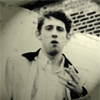|
Catholic interpretation of this, as I understand the theology, is that humans are innately fallible. While our decisions can be guided by revelation, preferably coupled with reading theology and the teaching of the church, it's part of our fallible nature as humans that we can get the final decision wrong. I was taught that the Catholic church believes in the primacy of conscience - that ultimately we need to make moral and religious decisions according to our own understanding of what's right and wrong if that understanding is rooted in a true and honest searching of our conscience and Catholic doctrine. The decision may still be objectively wrong according to God's will, because we as humans are fallible, but the process is the important part. That's how you get the College of Cardinals voting for a pope and dealing with political factions instead of just assuming that God will make everyone agree on the right candidate - part of the deal with humanity is that humanity has free will, which includes the ability to make well-intentioned but incorrect decisions about what the church should do.
|
|
|
|

|
| # ¿ May 22, 2024 10:36 |
|
Hey GAINING WEIGHT..., one source that I've only just started reading that you might find interesting is Mystery and Promise: A Theology of Revelation by the Catholic theologian John Haught.
|
|
|
|
GAINING WEIGHT... posted:This is a very long read and I obviously haven't gotten through all of it yet. I have, however, read the final chapter wherein he discusses some criticisms of "revelation" as well as rebuttal to those criticisms. I read that chapter as having two basic claims: 1. He rejects a rationalist or scientific test of revelation, because revelation exists in the domain of "disclosure" truth rather than "pragmatic" truth: it offers a different way of understanding reality rather than an understanding intended to be judged on the basis of how it allows manipulation of the observable world. It's totally reasonable to criticize that perspective, but I don't think he stops there as far as assessing truth-claims in revelation. 2. His second point is relatively under developed, but he makes two arguments for how to test revelation. The first is participating in the community of coreligionists and testing revelation against the established theology. This is predicated on the idea that religious communities have established some basic correspondence of their theology with God's will. My assumption is that he thinks that at this stage purported revelation will either be accepted by other believers as a new understanding of theology, as has happened frequently with new theological ideas, or alternately be shown to be inconsistent and therefore likely to be false. His second way of testing is basically internal - it's humbling yourself so that you drop any of the elements of hubris or desire for revelation that could lead you to mistake false beliefs for revelation. Practically, I'm not sure either approach satisfies your concern, because the first could devolve to theology by democracy and the second is purely internal. They do offer at least two potential ways of approaching the question of how to assess others' potential revelations or your own, though.
|
|
|



